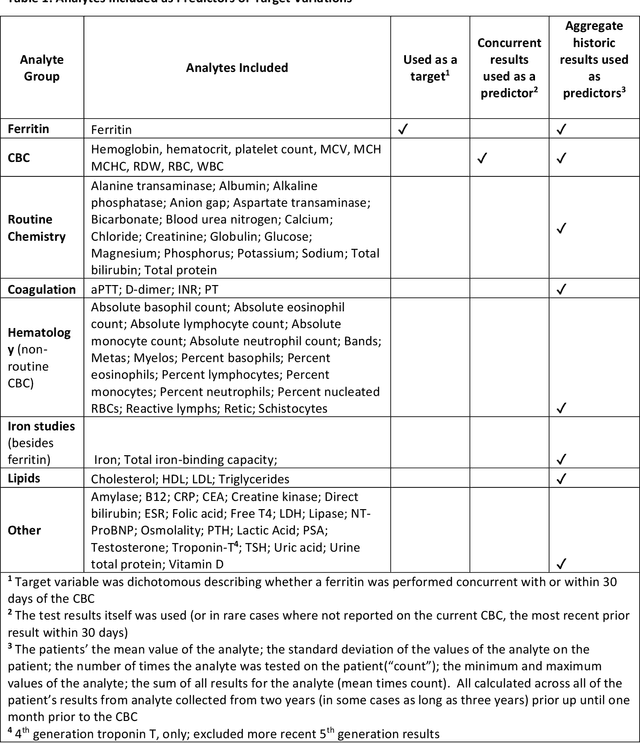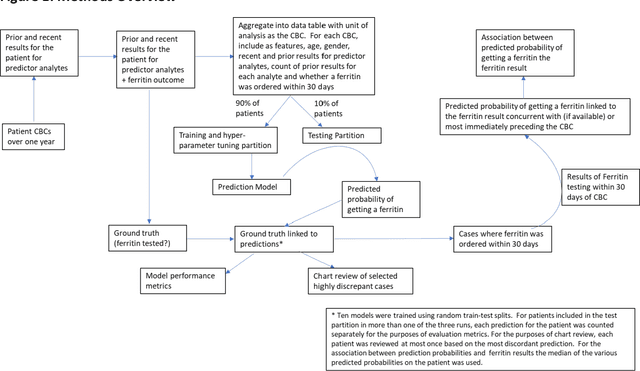Anand Dighe
Using Machine Learning to Develop Smart Reflex Testing Protocols
Feb 01, 2023

Abstract:Objective: Reflex testing protocols allow clinical laboratories to perform second line diagnostic tests on existing specimens based on the results of initially ordered tests. Reflex testing can support optimal clinical laboratory test ordering and diagnosis. In current clinical practice, reflex testing typically relies on simple "if-then" rules; however, this limits their scope since most test ordering decisions involve more complexity than a simple rule will allow. Here, using the analyte ferritin as an example, we propose an alternative machine learning-based approach to "smart" reflex testing with a wider scope and greater impact than traditional rule-based approaches. Methods: Using patient data, we developed a machine learning model to predict whether a patient getting CBC testing will also have ferritin testing ordered, consider applications of this model to "smart" reflex testing, and evaluate the model by comparing its performance to possible rule-based approaches. Results: Our underlying machine learning models performed moderately well in predicting ferritin test ordering and demonstrated greater suitability to reflex testing than rule-based approaches. Using chart review, we demonstrate that our model may improve ferritin test ordering. Finally, as a secondary goal, we demonstrate that ferritin test results are missing not at random (MNAR), a finding with implications for unbiased imputation of missing test results. Conclusions: Machine learning may provide a foundation for new types of reflex testing with enhanced benefits for clinical diagnosis and laboratory utilization management.
 Add to Chrome
Add to Chrome Add to Firefox
Add to Firefox Add to Edge
Add to Edge